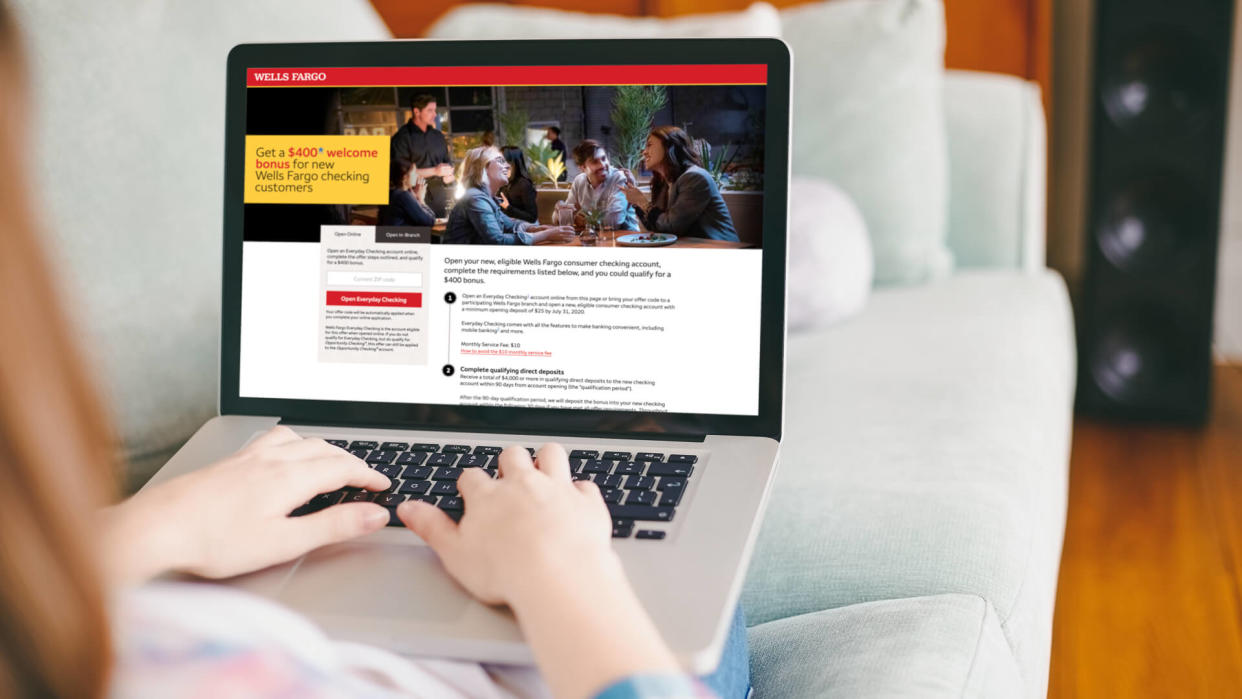9 Common Checking Account Mistakes To Avoid

A checking account is a crucial tool for managing your money. You can use one to make deposits and withdrawals, to pay bills and, if you’re an employee, have your paycheck directly deposited.
Experts: Here’s How Much Money You Should Have in Your Savings Account in Your 50s
Plan: How To Build Your Savings From Scratch
Checking accounts are also ideal for storing money for the short term that you need quick access to — while savings should go in a savings account, ideally a high-yield one. It all might seem pretty simple, but there are actually several ways one can err with a checking account.
Let’s have a look at nine common checking account mistakes to avoid, according to finance experts.
Not Monitoring Your Account
So you have a checking account, but do you know what is in it? All the time? It’s critical to keep the pulse on all activity that happens in your checking account by regularly monitoring it.
“Many individuals don’t check their account balance regularly and have no idea if they are spending in line with what they have in the bank,” said Susie Italiano of Idle Money Blog.
Take Our Poll: Would You Put All of Your Savings in an Apple Savings Account?
Keeping Too Much Money in Your Account
Though it’s of utmost importance to have enough money in your checking account, you don’t want to keep too much more than the bare minimum needed in there, because you won’t generate very high interest.
“Many people make the mistake of keeping too much money in their checking accounts,” said Anokye Miller, financial advisor at Ambitious Investor. “Keeping a large balance in your checking account means that you’re missing out on potential interest earnings. Instead, move excess funds to a high-yield savings account or investment account where your money can grow and earn interest.”
Overusing Overdraft Protection
Some banks offer overdraft protection, meaning that if you accidentally spend more than you have the bank will essentially spot you the money and not charge you a fee for doing so. This is a great perk, but it can be easily abused.
“Some people make the mistake of relying on overdraft protection too heavily, which can lead to high fees and interest charges,” Miller said. “Instead, aim to use overdraft protection sparingly and only in emergencies. Set up alerts to notify you when your account balance is getting low so that you can take action before you overdraw your account.”
Sharing Your Account Information
Unless you have a joint account with someone — or your employer needs it for direct deposit — don’t ever give out your checking account information.
“There are fraudsters out there that are perfectly capable of calling you, asking some cleverly worded questions and tricking you to give them your bank account details,” Italiano said. “You should never, ever give away any of your checking account details to anyone — especially if they are demanding them over the phone.”
Not Setting Up Security Alerts
Most banks enable security alerts that let you know when money has been debited from your account. Not using this courtesy service is a mistake.
“You should set up the security alerts that are available to you from your bank,” Italiano said. “For example, I receive a message every time my credit card is used, and I’d receive a message if I went into overdraft. Take advantage of your bank’s free services — and their alerts are definitely worth looking into.”
Not Planning for Direct Debits
If you have direct debits set up to, say, pay for subscription services and/or bills, that’s great; but you need to keep on top of these transactions and plan ahead.
“You always need to know exactly when and how much money you will be paying out through your direct deposit, so that you can make sure there are enough funds in the checking account for you to not go into overdraft,” Italiano said.
Not Rounding Up Change to Savings Account
Some checking accounts (and apps) allow you to “round up” the extra change on a debit purchase and automatically transfer the difference to your savings account. For example, say you pay $3.87 for a latte, a round-up program would transfer 13 cents (so that your total expenditure is $4) into your designated savings account.
Not taking advantage of these programs is a mistake, according to Brandi Vytlas, VP of retail financial services at Centris Federal Credit Union.
Not Understanding How Early Paycheck Deposits Work
There are several robust checking accounts on the market that tout the perk of allowing owners to receive their paychecks early. Bear in mind that this service could come with a fee.
“Understand that the financial institution that deposits your paycheck one to two days early may charge a fee,” said Julie Strohfus, VP of products at Centris Federal Credit Union. “And understand that once that early pattern is established, you still receive your paycheck on the same schedule as before. For example, you still get paid every two weeks.”
Using Just Any ATM
Your checking account comes with a debit card that you can use at any ATM. But don’t make the mistake of using an ATM that is not within your bank’s network. You’ll almost certainly get charged a fee for doing so.
“Use your bank’s app to locate other branches or free ATMs so you don’t incur the most dreaded of all account fees,” said Akpan Ukeme, CFP at Finance4Zoomers. “If you’re using an online bank, they’ll likely have a smaller network of ATMs, but many will offer a monthly ATM fee refund.”
More From GOBankingRates
This article originally appeared on GOBankingRates.com: 9 Common Checking Account Mistakes To Avoid
